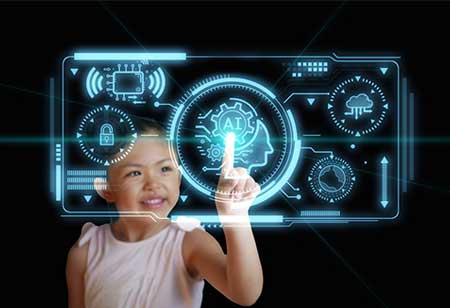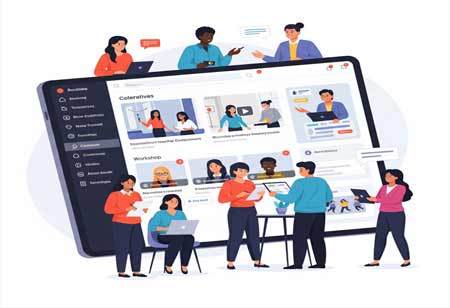THANK YOU FOR SUBSCRIBING
Be first to read the latest tech news, Industry Leader's Insights, and CIO interviews of medium and large enterprises exclusively from Education Technology Insights
AI Empowering Teachers and Reshaping Learning Methods
AI literacy is essential in education, enabling teachers and students to use AI tools for personalized learning, co-creation, and problem-solving. It prepares learners for the future by fostering creativity, collaboration, and responsible digital citizenship.

By
Education Technology Insights | Wednesday, November 19, 2025
Stay ahead of the industry with exclusive feature stories on the top companies, expert insights and the latest news delivered straight to your inbox. Subscribe today.
FREMONT, CA: AI literacy, the ability to understand, evaluate, and effectively engage with AI technologies, is becoming increasingly essential for both educators and students. As the world becomes increasingly driven by AI, it is crucial to foster this literacy to equip learners with the knowledge and confidence they need to navigate and succeed in the future.
AI literacy involves understanding the foundational principles of AI, such as machine learning, natural language processing, and neural networks, as well as its ethical implications. For teachers, this means acquiring the knowledge to integrate AI tools into their classrooms, helping them improve teaching methodologies and personalize student learning experiences. For students, it involves gaining the skills needed to use AI responsibly and creatively, allowing them to tackle problems and create new solutions with the help of these advanced technologies.
One of the most significant benefits of AI literacy in education is its ability to enhance personalized learning. AI can develop adaptive learning platforms catering to individual students' needs and learning styles. Using algorithms that analyze students' progress, AI can identify areas where learners struggle and provide tailored resources to address those gaps. For instance, an AI-powered system might offer additional practice exercises in subjects where a student is underperforming or suggest advanced materials to challenge high-achieving learners. This personalized approach can significantly improve student engagement and outcomes by meeting each learner where they are.
In addition, AI literacy fosters co-learning and co-creation, which can help break down traditional educational barriers. Students and teachers can collaborate with AI to co-create content, such as interactive lessons or digital projects, and solve complex problems together. AI tools can assist students in brainstorming ideas, generating solutions, and refining their work. For example, an AI system might suggest refining an essay or helping a student simulate different outcomes in a science experiment. By leveraging AI as a collaborative partner, students and teachers can deepen their understanding of subjects and push the boundaries of their creativity.
AI literacy is also crucial in preparing students for the future workforce. As AI continues to shape industries, from healthcare to finance to manufacturing, having a solid understanding of AI tools and applications will be an invaluable asset. AI-literate students will be better equipped to navigate and thrive in careers increasingly relying on artificial intelligence. Moreover, fostering a deep understanding of AI's ethical implications, such as issues related to bias, privacy, and accountability, helps students become responsible digital citizens who can advocate for fairness and transparency in AI applications.
Despite AI's immense potential, it is essential to recognize challenges in implementing AI literacy. Teachers may need professional development to integrate AI tools into their curriculum effectively. Likewise, it is essential to address issues like access to technology and data privacy concerns to provide equitable opportunities for all students. AI literacy programs should be developed with these factors, ensuring teachers and students can utilize AI effectively without encountering barriers.
AI literacy is vital in the AI age, enabling educators and students to use AI tools for collaboration, creativity, and problem-solving. As AI continues to evolve, understanding its potential and limitations will empower teachers and students to enhance the learning experience, foster innovation, and address future challenges. By promoting AI literacy in education, we can build a generation of learners who are adept at using AI and responsible for shaping its development.







